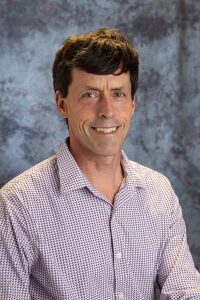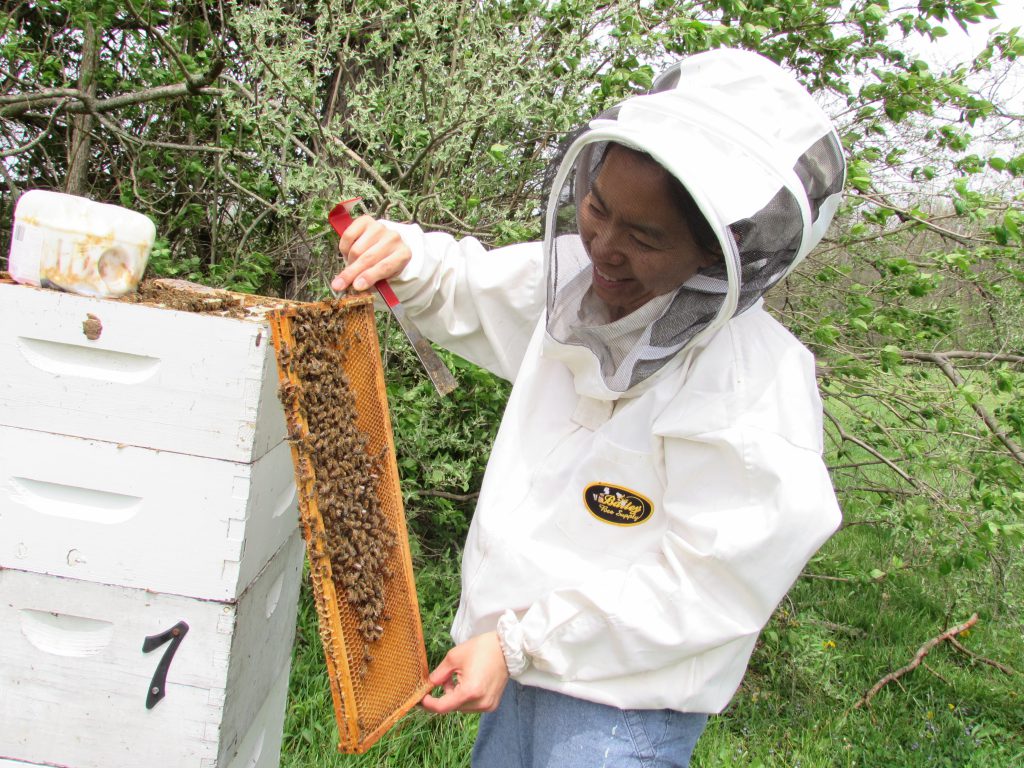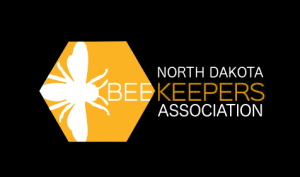Click Here if you listened. We’d love to know what you think. There is even a spot for feedback!
Read along below!
Found in Translation
An Interview with Dr. Hongmei Li-Byarlay
Associate Professor and Project Director for Pollinator Health, Central State University, Ohio
By: Jay Evans, USDA Beltsville Bee Lab
Where are you from originally?
*I was born in Tianjin, China, and came to the U.S. to study for my Ph.D. in 2002.
How did you get interested in science?
*When I was a sixth-grader, I talked to my uncle and told him that I want to be a scientist! Maybe because I had read so many books on the weird creatures in the deep ocean and stories of UFOs.
Where did you go to school and what did you study?
*I went to Tianjin Normal University for my Bachelor’s degree in Biology and Education (dual degree). My senior project was on the effects of metal contamination on bacteria in garlic roots. Then, I went to Nan Kai University for my Master’s degree in Zoology. I studied micro-moths in Northern China and discovered four new species.
In 2002, I went to Purdue University in Indiana for my Ph.D. in Entomology and studied genetics and physiology of fruit flies with Dr. Barry Pittendrigh and Larry Murdock. In 2010, I started my postdoc training with Dr. Gene Robinson at the University of Illinois at Urbana-Champaign, studying behavioral genetics of honey bees. In 2013, I studied epigenetics and aging of honey bees with Drs. David Tarpy at NCSU and Olav Rueppell at UNC-Greensboro.
How did you start your career after school?
*In 2017, I got an offer from Central State University as a new Assistant Professor of Entomology. CSU had just gained their new status as a 1890 Land Grant Institution with USDA. I was very excited to start my own lab.
Which hot topics are you studying now?
*I am studying 1) the molecular and physiological mechanisms underlying the social behavior and ageing of honey bees, such as grooming behavior, aggression and foraging behavior, 2) active breeding efforts for selection of mite-resistant bees by selecting mite-biting stocks and 3) landscape ecology of pollinators and flowers.
Where have you traveled in your studies of bees and what was most memorable?
*I have traveled to China, Germany, Canada, Puerto Rico and many different states in the U.S. The most striking memories were observing and doing experiments with Apis cerana in China, and my trip to Puerto Rico to see and feel the gentle AHBs in reality. I really enjoyed interacting with all the hives there.
What are the biggest challenges facing beekeepers moving forward?
*The desire to find new solutions for mite management is so high, and there are many new ideas. I just hope we all think of new solutions by integrating the sustainability of our hives and our environment.
What gives you hope? What are the best recent discoveries in bee science?
*The government, bee scientists, beekeepers and non-profit organizations are all working together to find the best ways to help our bees, which showed the most love and funding support from the community.
Three of the most interesting discoveries from our lab are:
1)A new publication on Single-cell dissection of aggression in honey bee colonies. https://www.nature.com/articles/s41559-023-02090-0. We are all so excited to use a new sequencing technology to help us to understand bees in a deeper way.
2)Our lab’s new pub about RNA methylation and discovery of long non-coding RNAs underlying bee aggression https://bmcgenomics.biomedcentral.com/articles/10.1186/s12864-023-09411-4
3)We showed that the mandibles (mouthparts) are different between high mite-biting honey bee workers and current commercial colonies. I am also working on a new manuscript to show the striking comparison of mouthparts between two different species of Apis, in hopes this sheds light on mite defenses. https://doi.org/10.3389/fevo.2021.638308
Any advice for future scientists?
*Stay curious and ask questions!
What are your hobbies and other interests beyond bees and science?
*I like running, reading with my kids, hiking and camping in national parks, and meditation.








